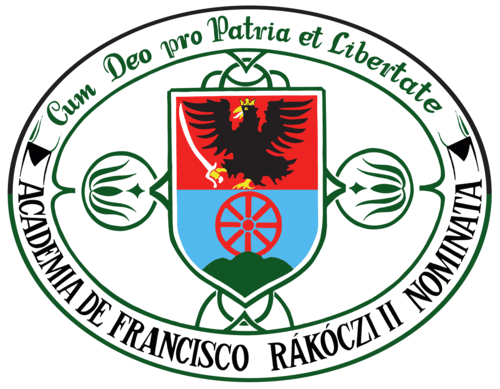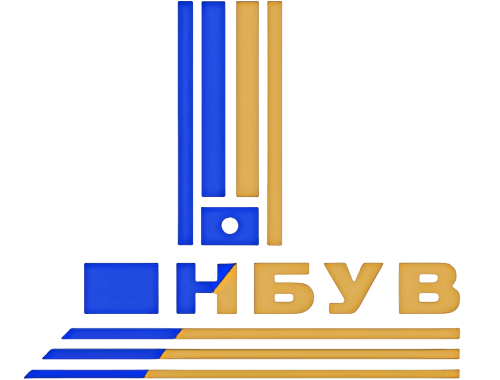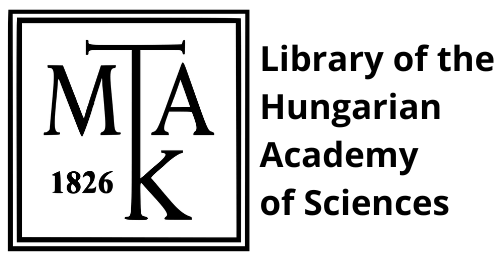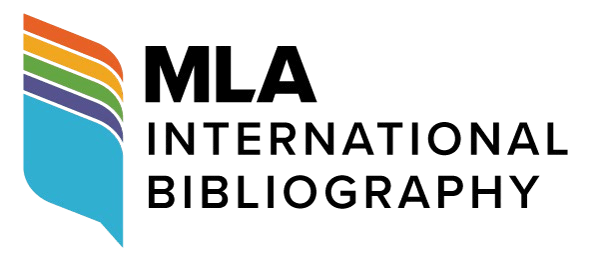Художнє моделювання характерів суддів у новелах «Судія» Наталії Кобринської та «Прикрий сон» Богдана Лепкого
DOI:
https://doi.org/10.58423/2786-6726/2025-1-170-190Ключові слова:
модернізм, мала проза, образ судді, сповідальна проза, прийом сну, тема морального падінняАнотація
У статті зроблено спробу типологічного зіставлення та аналізу засобів художнього моделювання характерів суддів і порушеної проблематики в новелах двох представників західноукраїнської новелістики межі століть – Наталії Кобринської та Богдана Лепкого. З’ясовано, що кінець ХІХ – початок ХХ століть – це епоха кардинального оновлення європейської, у тому числі й української літератури, час змін у художньому мисленні та сприйнятті світу, коли відбувалося активне розширення тематики та проблематики малої прози, зростала увага до внутрішнього світу людини, до тем із життя інтелігенції.
Простежено, що новели «Судія» Наталії Кобринської та «Прикрий сон» Богдана Лепкого розкривають художні характери доволі рідкісного для української новелістики кінця ХІХ – початку ХХ століття типу персонажа – судді, представника системи правосуддя. Обидва письменники прагнуть розкрити внутрішній світ героїв, застосовуючи при цьому різні художні прийоми та засоби (наскрізні символічні деталі, імпресіоністична поетика, контрастне зіставлення персонажів, потік свідомості – у Кобринської, іронія, фантастичність, антропонім з додатковим смисловим підтекстом, градація емоційної напруженості тощо – у Лепкого). Твір Наталії Кобринської близький до сповідальної імпресіоністичної прози, змальовуючи становлення персонажа від дитинства до старості через потік спогадів, асоціацій та емоцій. Натомість Богдан Лепкий показує свого героя вже сформованим і використовує прийом сну, який допомагає проникнути в глибини людської підсвідомості, розкрити потаємні думки персонажа.
З’ясовано, що у художньому плані більш переконливим та психологічно достовірним постає безіменний герой Наталії Кобринської, характер якого подається у становленні та складних суперечностях. Обидва персонажі виявляються недостойними високого звання судді, однак якщо у «Судії» представлено історію складної внутрішньої моральної боротьби і, зрештою, морального падіння, то «Прикрий сон» є історією повної моральної деградації особистості, нездатної на катарсис та усвідомлення своїх злочинів. Відповідно різне і ставлення авторів до своїх персонажів: якщо Наталія Кобринська попри те, що не виправдовує героя, однак співчуває його особистій трагедії, прагне розкрити його глибинні мотивації, то в Богдана Лепкого відчувається відверто іронічне, навіть зневажливе ставлення до Никифора Черевка, який втратив право називатися чесною і моральною людиною.
Проаналізовано, що в новелах через образи суддів розкривається ціла низка гострих морально-етичних та соціальних проблем: морального вибору, невідповідності ідеалу та дійсності, сенсу життя, гендерна проблематика, соціальної нерівності, духовного відчуження тощо. В обох творах тема морального переступу судді набуває глибокого суспільного значення, адже злочин чинять особи, які мали б стояти на сторожі соціальної справедливості, на захисті бідних і знедолених.
Зроблено висновок, що у творчості Н. Кобринської та Б. Лепкого з’являються цікаві образи представників судової системи із майстерно розробленими характерами, що свідчить про розвиток української прози епохи модернізму в контексті світового письменства, де твори про представників вищого світу, інтелігенцію з увагою до їхнього внутрішнього світу, часто суперечливого та неодновимірного з багаторівневою системою (свідомих і підсвідомих) мотивацій, до морально-етичної та психологічної проблематики набували все більшої популярності.
Посилання
Burkalets, Nataliia 1999. Poetyka maloi prozy Bohdana Lepkoho: Avtoreferat dysertatsii na zdobuttia naukovoho stupenia kandydata filolohichnykh nauk [The Poetics of Bohdan Lepky’s Short Prose: Abstract of a Dissertation for the Degree of Candidate of Philological Sciences]. Kyiv: Natsionalna akademiia nauk Ukrainy. (In Ukrainian)
Dyrda, Nadiia 1997. Zhyttievyi i tvorchyi shliakh Bohdana Sylvestrovycha Lepkoho. Bibliohrafichnyi pokazhchyk [The Life and Creative Path of Bohdan Sylvesterovych Lepky. Bibliographic Index]. Ternopil. (In Ukrainian)
Zborovska, Nila 2003. Psykhoanaliz i literaturoznavstvo: posibnyk [Psychoanalysis and Literary Studies: Textbook]. Kyiv: Akademvydav. (In Ukrainian)
Zushman, Mykhailo 2007. Mala proza Bohdana Lepkoho v konteksti zakhidnoukrainskoi novelistyky kintsia XIX – pochatku XX stolittia: Avtoreferat dysertatsii na zdobuttia naukovoho stupenia kandydata filolohichnykh nauk [Bohdan Lepky’s Short Prose in the Context of Western Ukrainian Short Fiction of the Late 19th – Early 20th Century: Abstract of a Dissertation for the Degree of Candidate of Philological Sciences]. Kirovohrad: Kirovohradskyi derzhavnyi pedahohichnyi universytet imeni Volodymyra Vynnychenka. (In Ukrainian)
Kobrynska, Nataliia 1990. Dukh chasu [The Spirit of the Age]. Lviv: Karpaty. (In Ukrainian)
Kovaliv, Yurii 2007. Literaturoznavcha entsyklopediia: U dvokh tomakh. T. 1 [Encyclopaedia of Literary Studies: In Two Volumes. Vol. 1]. Kyiv: Vydavnychyi tsentr «Akademiia». (In Ukrainian)
Kordonets, Oleksandr – Shetelia, Viktor 2024. Zhanr animalistychnoho opovidannia u malii prozi Bohdana Lepkoho [The Genre of Animalistic Stories in Bohdan Lepky’s Short Prose]. Acta Academiae Beregsasiensis, Philologica 3/1: s. 152–165. https://doi.org/10.58423/2786-6726/2024-1-152-165 (In Ukrainian)
Kuznetsov, Yurii 1995. Impresionizm v ukrainskii prozi kintsia XIX – pochatku XX stolittia: Problemy estetyky y poetyky [Impressionism in Ukrainian Prose of the Late 19th – Early 20th Century: Problems of Aesthetics and Poetics]. Kyiv: Zodiak-EKO. (In Ukrainian)
Lehkyi, Mykola 2012. Proza Natalii Kobrynskoi (ideino-estetychna evoliutsiia y poetyka) [The Prose of Nataliya Kobrynska (Ideological-Aesthetic Evolution and Poetics)]. Ukrainske literaturoznavstvo 75: s. 95–115. (In Ukrainian)
Lepkyi, Bohdan 1990. Vybrane [Selected Works]. Lviv: Svit. (In Ukrainian)
Ponikarovska, Nataliia 2015. Batkivske prokliattia v ukrainskii etnichnii kartyni svitu v konteksti doslidzhennia narodnykh uiavlen pro zalozhnykh [The Father’s Curse in the Ukrainian Ethnic Worldview in the Context of Folk Beliefs about the Restless Dead]. Molodyi vchenyi 11/26: s. 154–157. (In Ukrainian)
Tkachuk, Mykola 2005. Modernistskyi dyskurs liryky ta novel Bohdana Lepkoho [The Modernist Discourse of Bohdan Lepky’s Lyrics and Short Stories]. Ternopil: Ternopilskyi natsionalnyi pedahohichnyi universytet. (In Ukrainian)
Frankl, Viktor 2016. Liudyna v poshukakh spravzhnoho sensu. Psykholoh u kontstabori [Man’s Search for Ultimate Meaning. A Psychologist in a Concentration Camp]. Kharkiv: Klub simeinoho dozvillia. (In Ukrainian)
Franko, Ivan 1986. Chy vertatys nam nazad do narodu? [Should We Return to the People?] In: Franko I. Zibrannia tvoriv: U 50 tomakh. T. 45. Kyiv: Naukova dumka. (In Ukrainian)
Shvets, Alla 2018. Zhinka z khystom Ariadny. Zhyttievyi svit Natalii Kobrynskoi v heneratsiinomu, svitohliadnomu i tvorchomu vymirakh [A Woman with Ariadne’s Gift. The Life of Nataliya Kobrynska in Generational, Worldview, and Creative Dimensions]. Lviv: Kolo. (In Ukrainian)
Shumylo, Natalia 2003. Pid znakom natsionalnoi samobutnosti (Ukrainska khudozhnia proza ta literaturna krytyka kintsia XIX – poch. XX stolittia) [Under the Sign of National Identity (Ukrainian Fiction and Literary Criticism of the Late 19th – Early 20th Century)]. Kyiv: Zadruha. (In Ukrainian)
Yunh, Karl Hustav 2002. Psykholohiia ta poeziia [Psychology and Poetry]. In: Zubrytskyi, M. red. Slovo. Znak. Dyskurs. Antolohiia svitovoi literaturno-krytychnoi dumky. Lviv: Litopys, s. 119–142. (In Ukrainian)
Yanko, Zhanna 2013. Ekzystentsiini aspekty sotsialnoho piznannia u konteksti tvorchosti Natalii Kobrynskoi [Existential Aspects of Social Cognition in the Context of Nataliya Kobrynska’s Creative Work]. Problemy humanitarnykh nauk. Filosofiia 31: s. 79–89. (In Ukrainian)
Downloads
Опубліковано
Як цитувати
Номер
Розділ
Ліцензія
Автори зберігають авторські права та надають журналу право першої публікації. Водночас робота ліцензується за умовами ліцензії Creative Commons Attribution 4.0 International License (CC BY 4.0), що дозволяє іншим поширювати матеріал за умови належного посилання на автор(ів) та первинну публікацію в цьому журналі.

















